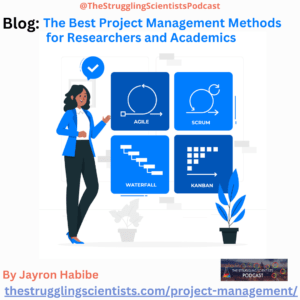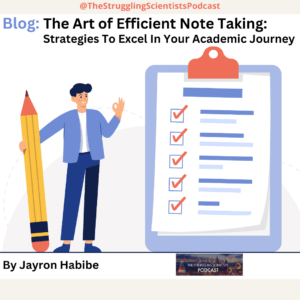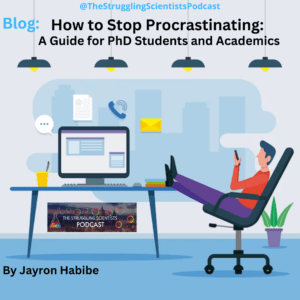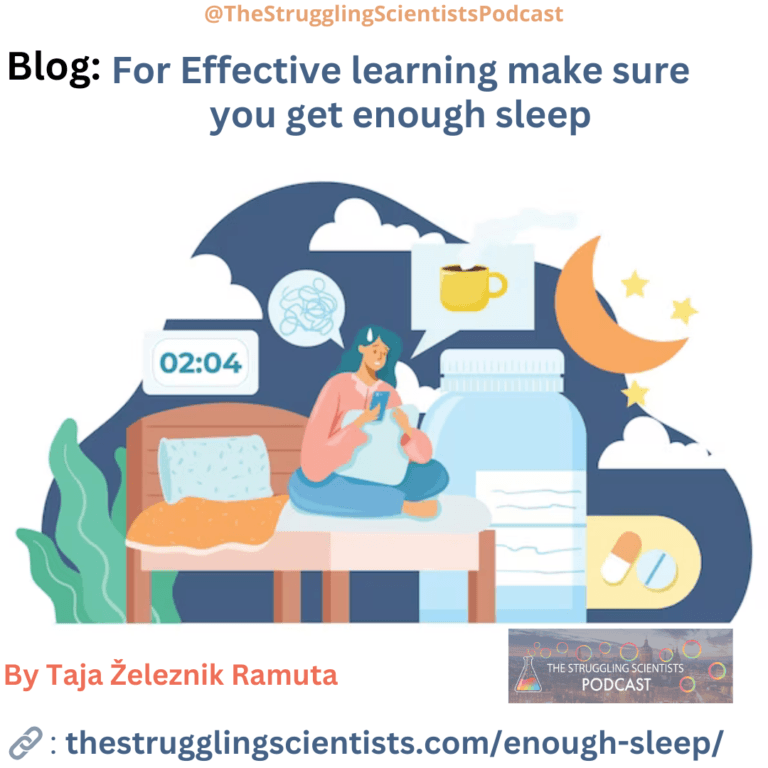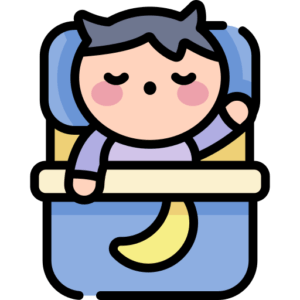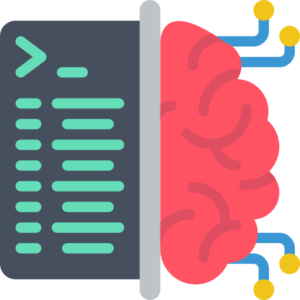We spend approximately one-third of our lives asleep. Despite the vast amount of time we spend in this unconscious state we still don’t have a conclusive answer to why we sleep and since sleep is essential for all bodily functions, the potential answers to why we sleep are related to the immune, hormonal, thermoregulatory systems and basic metabolic processes. However, it is the brain and the cognitive functions it supports that suffer the most from the lack of sleep and that led the researchers to conclude that “sleep is of the brain, by the brain, and for the brain”.
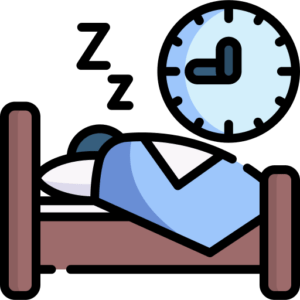
How is sleep connected to learning?
Sleep plays a crucial role in memory consolidation, which is a process of transforming a temporary memory into a more stable, long-lasting one (i.e. allowing us to remember what we studied). While the exact mechanisms connecting sleep, memory, and neuro-plasticity remain to be completely elucidated, it has become clear that specific synaptic connections that were active while awake are then strengthened during sleep, resulting in consolidation of memory, and on the other hand the synaptic connections that were inactive are weakened. Sleep also helps to integrate new information into existing memory networks, assists with filtering out useless information, and is associated with enhanced creativity and problem-solving skills.
Not sleeping or getting enough sleep can lower your learning abilities by as much as 40%
Adults should be sleeping for 7 to 9 hours every night. It probably doesn’t come as a surprise that most of young adults are sleeping less than the recommended duration. Lack of sleep is in the short run connected to judgment impairment, agitation, irritability, and worse cognitive performance, while in the long run it can even contribute to cardiometabolic disorders. Interestingly, the cognitive performance of a person who has been awake for 17 hours is similar to the cognitive performance of an individual who has a blood alcohol concentration of 0.05% (approximately after 2 glasses of wine consumed in one hour).
Longer and good quality sleep has been linked with better school grades and study effort. To reach peak performance, it is not enough to get a sufficient amount of sleep of good quality on the night before the test but it is crucial that students get sufficient good-quality sleep during the actual course when the topics are being taught. Several studies have shown that the average of sleep students got during the semester correlates closely with their grades.
All-nighters are the worst option
Many young adults are used to staying up past 3 A.M. at least once weekly and about 20% of students pull all-nighters at least once a month. While staying up late and studying or pulling an all-nighter sounds like a great idea if you’ve procrastinated too long, this is actually one of the least optimal ways to learn. When you go to sleep is actually important, as research has shown that students who went to bed after 2 A.M. performed worse on tests even if they got a sufficient amount of sleep.
Moreover, consistency is important. Students who got a consistent amount of sleep each night performed better than students with hectic sleep schedules, even if in the end they slept the same average amount of time. It has been shown by several studies that people who get a good night’s sleep after a learning session have better chances of effective memory consolidation in comparison to people who stay awake for the same amount of time after learning.

Naps improve learning
Naps diminish the negative consequences of inadequate sleep, enhance attention and alertness that results in cognitive benefits. Young adults who took a nap after a learning activity (in various studies the length of the nap varied from 20 to 90 minutes) did approximately 20% better on the test (due to improved recollection) than those who stayed awake following learning. Naps also help sustain learning ability throughout the day, as one study showed that a group of participants who napped between learning sessions that were scheduled for noon and 6 P.M. performed better and learned easily during both learning sessions while the group that didn’t nap experienced decreased learning ability in the evening learning session.
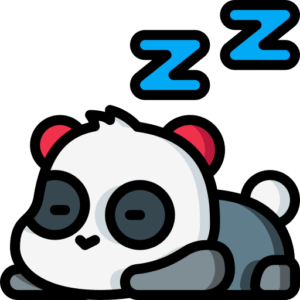
How to ensure good-quality sleep to get the best result?
- Set a consistent sleep schedule and aim to sleep for 7-9 hours each night
- Go to sleep between 10 P.M. and 12 A.M.
- Limit caffeine intake after 3 P.M. (remember that green and black teas, various sodas, dark chocolate, and energy drinks contain plenty of caffeine) and stop eating about three hours before going to bed
- Reduce blue light exposure in the evening
- Keep in mind that alcohol consumption drastically decreases the quality of sleep
References:
Simon KC, Nadel L, Payne JD. The functions of sleep: A cognitive neuroscience perspective. Proc Natl Acad Sci U S A. 2022 Nov;119(44):e2201795119. doi: 10.1073/pnas.2201795119.
Squire LR, Genzel L, Wixted JT, Morris RG. Memory consolidation. Cold Spring Harb Perspect Biol. 2015 Aug 3;7(8):a021766. doi: 10.1101/cshperspect.a021766.
Okano K, Kaczmarzyk JR, Dave N, Gabrieli JDE, Grossman JC. Sleep quality, duration, and consistency are associated with better academic performance in college students. NPJ Sci Learn. 2019 Oct 1;4:16. doi: 10.1038/s41539-019-0055-z.
Maheshwari G, Shaukat F. Impact of Poor Sleep Quality on the Academic Performance of Medical Students. Cureus. 2019 Apr 1;11(4):e4357. doi: 10.7759/cureus.4357.
Holz J, Piosczyk H, Landmann N, Feige B, Spiegelhalder K, Riemann D, Nissen C, Voderholzer U. The timing of learning before night-time sleep differentially affects declarative and procedural long-term memory consolidation in adolescents. PLoS One. 2012;7(7):e40963. doi: 10.1371/journal.pone.0040963.
Cousins JN, Teo TB, Tan ZY, Wong KF, Chee MWL. Sleep after learning aids the consolidation of factual knowledge, but not relearning. Sleep. 2021 Mar 12;44(3):zsaa210. doi: 10.1093/sleep/zsaa210.
Newbury CR, Crowley R, Rastle K, Tamminen J. Sleep deprivation and memory: Meta-analytic reviews of studies on sleep deprivation before and after learning. Psychol Bull. 2021 Nov;147(11):1215-1240. doi: 10.1037/bul0000348.
Walker MP. Sleep-dependent memory processing. Harv Rev Psychiatry. 2008;16(5):287-98. doi: 10.1080/10673220802432517.
Mander BA, Santhanam S, Saletin JM, Walker MP. Wake deterioration and sleep restoration of human learning. Curr Biol. 2011 Mar 8;21(5):R183-4. doi: 10.1016/j.cub.2011.01.019.
Jones BJ, Spencer RMC. Role of Napping for Learning across the Lifespan. Curr Sleep Med Rep. 2020 Dec;6(4):290-297. doi: 10.1007/s40675-020-00193-9.
Matthew Walker. Why We Sleep: Unlocking the Power of Sleep and Dreams. Scribner, 2017.
Student sleep guide the impact of sleep on learning and memory. https://recharge.energy/pdf/Student_Sleep_Guide.pdf



